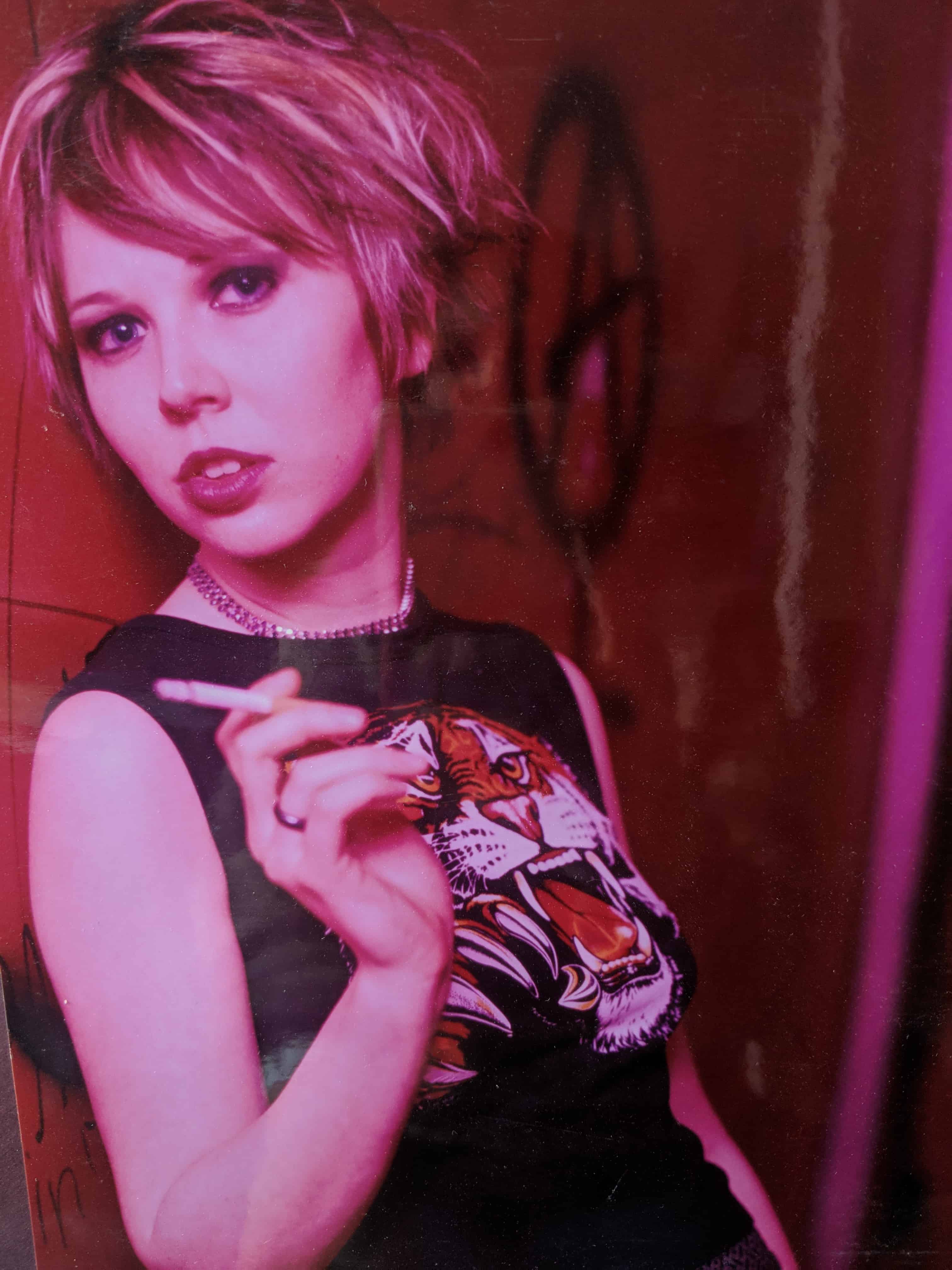I wake up midday, next to an ashtray full of cigarette butts, the familiar scent of rum (my favoured poison at the time) wafting from my bedside table.
It’s the morning after yet another bender, and I decide to pay a visit to the university’s health centre.
I had known for years that I had a problem with alcohol; I mean, I had been the only kid at school who snuck a screwdriver in my thermos. I knew from the moment I first felt the heat of red wine slide down my throat, as a flat-chested, prepubescent fourteen-year-old kid, that I had found what I had always been looking for. That morning, in 1999, during my first year of undergrad, I didn’t need the nurse at Concordia University to tell me I had a problem—I already knew I did.
As I sat in the reception area, I was given a flyer and asked to tick the boxes that corresponded with my experience.
“Have you ever decided to stop drinking for a week or so, but only lasted for a couple of days?”
YES
“Do you ever try to get extra drinks at a party because you do not get enough?”
ALWAYS
“Have you ever switched from one kind of drink to another in the hope that this would keep you from getting drunk?”
DEFINITELY
After handing in my filled-out survey, I got a stern pep talk from the nurse who definitely thought that my approximate 35-40 drinks a week was a problem.
I suppose it was the “encouragement” I needed to venture out to my first recovery meeting, so later that night, in the bitterly cold January, I marched up a steep hill, listening to the snow crunch beneath my boots, watching the puff of my breath, and descended into a church basement. I was very uncomfortable, but equally curious.
I can’t recall which church I was in, but I can remember the low ceiling, the dim lighting, and the near-weightless styrofoam cup of coffee I clutched in my hand. I remember not talking to anyone, but listening carefully as a handsome, middle-aged doctor stood at at the podium, openly sharing how he would operate on people while high.
Well fuck, I wasn’t that twisted. I would never do surgery while on drugs. I was just a student who partied hard. So I left that meeting, walked to The Cock n’ Bull on St. Catherine Street, and ordered two double Rum & Cokes. It was my regular order. I didn’t even have to say the words; I would just give the bartender a nod, and they’d appear. By the time I knocked the second one down, I would have the courage to saunter closer to the band so that I could sway my bony hips and sing, “L-O-L-A Lollllllaaaaaa.”
It’s January 30. In Canada, this is a day that has become synonymous with proactive sharing about addiction and mental health to help combat stigma, thanks to Bell Media, a multi-billion-dollar corporate entity. As someone who’s been openly sharing about my recovery from alcohol-use disorder for years, I tend to get anxiety in the days leading up to this day (how ironic), feeling a sort of (self-induced) pressure that I need to say something of value, or something different to what I’ve shared in the past.
So since that frosty day, two decades ago back in Montreal, where have I landed?
I didn’t get help at age nineteen because I didn’t want to. I knew I had a problem, but I didn’t want to be an “alcoholic.” At the time, the only support that seemed to be available for those dealing with an alcohol problem was AA. Make no mistake, I believe this abstinence-based philosophy provides a tremendously wonderful support community, and it is—without a doubt—what I credit my early sobriety to, and what saved me twelve years later, in 2010, when I was finally ready to get help.
Nowadays, however, there are so many more access points and pathways to recovery. You can join the 275,000 other women in recovery in the She Recovers community, read articles about various ways we recover in The Temper, follow blogs like Tell Better Stories or IG accounts like @HipSobriety or @laura_mckowen. Perhaps if all of these channels existed back in 1999, I would have been able to begin my recovery earlier, before I hit the point of repeatedly falling down and getting black eyes.
If you know alcohol is impacting your life in a negative way (and you do, we always do), then it doesn’t matter how you identify: there are support groups out there to help you. My life didn’t need to look like the high ER doctor, and your life doesn’t need to look how mine did for change to happen. If you think your life would be enhanced without alcohol, or any other substance, then that’s enough to start exploring the possibilities of change.
If I hadn’t gotten help, my life would have been over by now. I might not be typing this piece, remembering life twenty years ago.




 Follow Us On Instagram
Follow Us On Instagram
